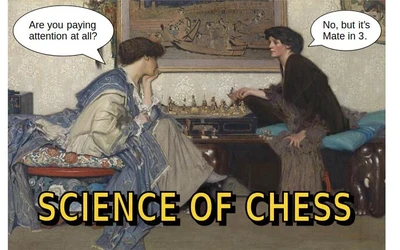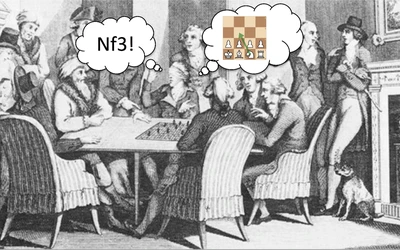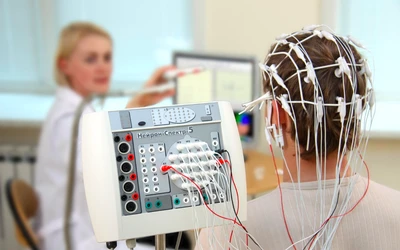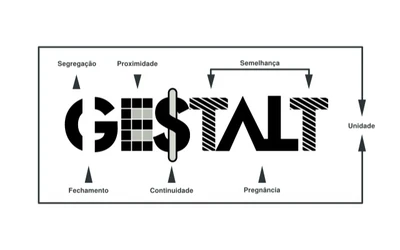NDpatzer's Blog

Science of Chess: What does it mean to have a "chess personality?"
What kind of player are you? How do we tell?
Science of Chess: Proving yourself wrong
The best players know it's not enough to be right, it's also working hard to find out when you're wr…
Science of Chess: Winning Streaks, Losing Streaks, and Skill
Being a patzer is hard, and it can be even worse when loss follows loss!
Science of Chess: Playing blindfold and seeing chess in your dreams
Blindfold simuls can leave players struggling with insomnia in a way that connects to the science of…
Science of Chess: What makes a move seem "Brilliant?"
Sometimes a chess move warrants not just one, but two exclamation points - but what makes us call a …
Science of Chess: Can you tell an easy puzzle from a tough one?
What makes some chess puzzles more difficult than others? Can strong players tell how hard a puzzle …
Chess Engines, Centaur Chess and an idea for a new kind of tournament
Engines have had an enormous impact on chess - can we find ways to incorporate them into OTB play fa…
Science of Chess: Can you tell a human opponent from a machine?
Do chess engines pass the Turing Test?
Science of Chess: Subliminal Chess in the Expert Mind?
Visual priming reveals how experts assess positions without awareness
Science of Chess: How does chess calculation depend on words vs. pictures?
Thinking ahead over the board requires maintaining some description of the position in your mind, bu…
Science of Chess: What happens in the brain when we see the best move?
EEG is good for measuring the timing of neural events, but can it reveal what happens when insight h…
Science of Chess: A Case Study of Reflex Epilepsy Induced by Playing Chess
An electrical storm in the brain reveals links between chess and (some) other forms of complex thoug…
Science of Chess: Gestalt Processing in Experts' Brains
Playing chess requires a network of distinct brain areas across the cortex, but what do these areas …
Science of Chess - Finding chess expertise in the brain: A case study
What do we learn by looking for neural networks that support chess expertise in the human brain? Wha…
Science of Chess: A g-factor for chess? A psychometric scale for playing ability
How do you measure chess skill? It depends on what you want to know.
Science of Chess (kinda?): Viih_Sou's 2. Ra3 and a modest research proposal
Take the 2. Ra3 Challenge! For Science!
Science of Chess - Achtung! Einstellung!
Pattern recognition is great, but the Einstellung effect can turn a master into a patzer (sort of).
Science of Chess - Eyetracking, board vision, and expertise (Part 2 of 2)
Better players move their eyes differently than weaker players - what does that tell us about their …
Science of Chess - Eyetracking, board vision, and expertise (Part 1 of 2)
Looking for the best move involves, well...looking. How do players move their eyes during a game and…
Science of Chess - Problem Solving or Pattern Recognition?
We often say chess is a game of patterns, but here I look at a study that suggests it is also a game…
Science of Chess - Should we study GMs to understand chess and the mind/brain?
Chess research focuses a lot on experts, but should it?
Science of Chess - Spatial Cognition and Calculation
How do spatial reasoning abilities impact chess performance? What is spatial cognition anyways?
5-minute game: More like Wilhelm SteinBLITZ!
The Queen goes to war early in the Scotch Game with 4. ... Qh4!?